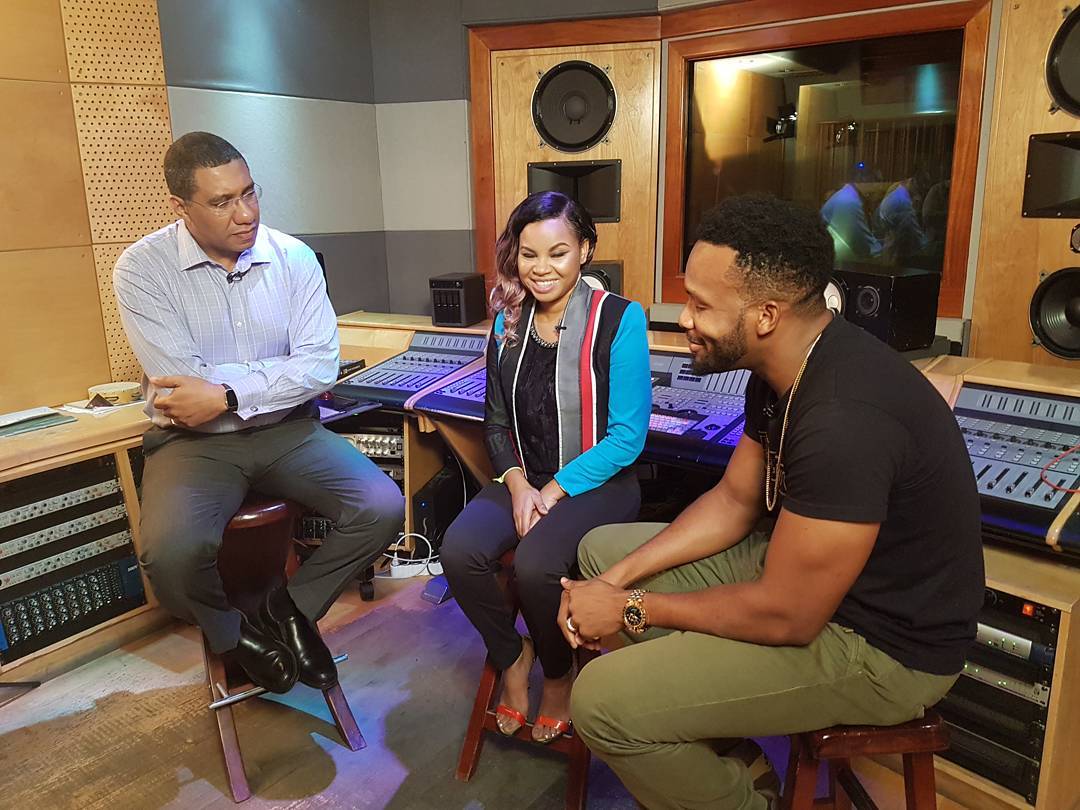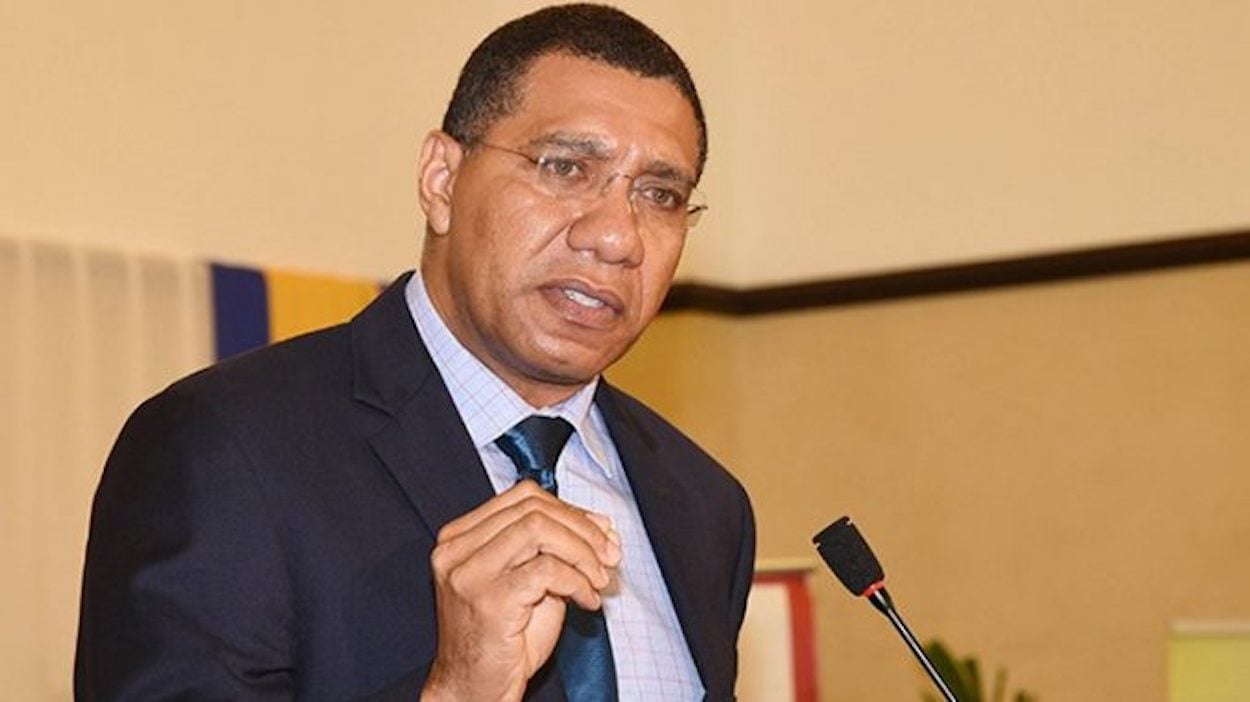The Jamaican Prime Minister is doubling down on dancehall music, being a major contributor to the high crime rate in the country.
Crime has long been a growing epidemic in Jamaica that governments are often stumped with. The disturbing outbreak of violence is so outrageous that Jamaica is recognized as a country with one of the highest crime rates in the world. While this is not at all new and historically was spurred on by violent political strategies, the current government is calling for dancehall music to start observing a social responsibility to young listeners.
Prime Minister Andrew Holness was recently criticized by music artists and fans for a statement regarding dancehall being a main cause of violence in Jamaica. Nevertheless, he is doubling down on his stance and is having the discussion yet again in his recent parliamentary meeting. The Most Honorable Andrew Holness, also known as BroGad, seems to be offering a blanket response to the counter-arguments from dancehall artists who have reacted to his previous remarks.
“In as much as you are free to reflect what is happening in the society, you also have a duty to place it in context,” he said. “That is not right, and though you have the protection of the constitution to sing about it, you also have a duty to the children who are listening to you to say ‘man, that is not right,'” he added.
Holness implied that artists are selective of which crimes to lash out on and maintained that all forms of violence are wrong. He went on to say that as a society, we “are not yet serious” if we cannot see that, and our outrage is short-lived. The public has had the opportunity to weigh in on the debate on social media, and while some agree with the negative influence of dancehall music on society. Many do not concur with the implication that it is responsible for the spike in the crime rate.

In one retort, an Instagram user commented, “Kmt you can’t control crime an a try turn on the music. Move a gweh. Look pan movies, tv, games, plus a who guh buy dub plates fi promotion. Bredda u did seh we ago can sleep wid wi doors open. Gwaan guh fix crime an low the art form that is providing a way out, U hear nuh artist a seh kidnap woman an kill them?” Another more succinct comment read, “it’s all about the person mindset.”
On the other side of the spectrum, some chimed in to say the PM’s speech was “facts.” Interestingly, it is also a fact that even decades ago, when there were no artists singing about “tek up the AK-47 and dun it inna man head” as Holness puts it, crime was also at a high rate in Jamaica. Fueled by the divide promoted by political parties, even socially conscious singer Bob Marley himself was a target of assassination attempts. Marley sang about unity and love and tried to get opposing parties to reconcile for the goodness of the country. However, crime was still at a significant level because of root causes like poverty, lack of opportunities, and of course, poor leadership (parenting, country leaders, etc.)
Some argue that that was then and this is now but just like traditions are passed down, so is the landscape of a country’s culture and the foundation that has long been set by our ancestors. Oftentimes, we understand our parents so much better after we see how they grew up, what their influences were and how what they were conditioned to believe. The same can be said about the areas where crime is concentrated in Jamaica and why it has remained so. While it is true that dancehall needs not perpetuate the idea of crime further, the positivity that Prime Minister Andrew Holness calls for it to promote is also present in the genre.
Jamaican artists sing about guns and violence but they also sing about love, struggles, hope, dreams, and other realities. Fans decide which songs get popular and which get lost in the sea of the oversaturated music industry. That being said, while a correlation is being drawn to crime and dancehall music, perhaps it is an inherent desire of the listener that drives the song and not the words of the artist that drives the crime. One Instagram user who weighed in on the matter said, “Bro the amount of positive songs out there and nobody paying them any attention, people gravitate towards the hardcore music, that is why the artiste supply the market with that type of music.”
Would Vybz Kartel be the most popular dancehall artist had it not been for the fans? More importantly, did fans gravitate towards him because of his relatability which could only come from him articulating what already exists? Based on the comments that are pouring in on the topic of Andrew Holness’s controversial statement, some believe that dancehall is being used as a scapegoat. “Gun violence and crime was around long before man an man start sing bout it. Politicians always trying to point finger and blame the citizen them,” wrote one user. “If the artist dem stop sing gun tune today crime nah move and that’s a fact,” another added.
Some also accused the PM of being a hypocrite as many dancehall artists remixed similar songs when they were called upon to promote political campaigns during the national election. “Oh but dancehall can promote politics with the same sort of songs for your campaign,” one fan wrote. Others defended Holness and his agenda, saying he is not hating on the music but rather is calling for dancehall artists to discourage violence in their songs. Again, this is done all the time in dancehall as even the biggest artists like Vybz Kartel and Mavado have contradicted previous releases by encouraging unity and the youth to refrain from crime and violence.
Like businesses, artists also have a social responsibility which they often honor with uplifting music that never gets as much attention as they ought to. However, when they sing about “badness,” fans love them for it while the government hates them for it. Music is not the only form of influential media, and dancehall is not the only genre that promotes a gangster lifestyle, so how did it suddenly become the cause of violence in Jamaica? It’s easy to pass the blame onto a large industry that has a major influence on the people, but how thorough was the research that brought politicians to this conclusion? As one commenter said, “Artist sing about the violence and the politicians provide the guns!”
The constant pointing of fingers only ignores the real source of the problem. It is no coincidence that Jamaica not only has a high crime rate but also a high poverty rate. It is no coincidence that the most crime-ridden communities are some of the poorest in the country. Should we ask an inner-city youth who grew up around violence and later adopted the lifestyle why he needs a gun or why he commits crimes? Do we genuinely believe that even one of them would say dancehall music? The widespread discourse on the matter comes from varying perspectives, none of which take into account the plight of the ghetto youth. “Why we nuh talk bout the abuse and parenting and leadership issues… a desso it start,” one citizen questioned.
What’s ironic is that the national outrage stemming from the vast increase in gender-based violence like rape – something dancehall never promotes – is what initiated the discourse on the source of crime in the first place. Perhaps our MPs ought to armor up, visit our troubled communities and hear straight from the horse’s mouth what is actually lacking that would drive them to a life of crime. Here they might uncover the seed of the worsening epidemic.
